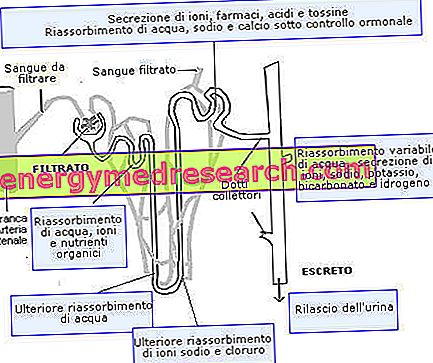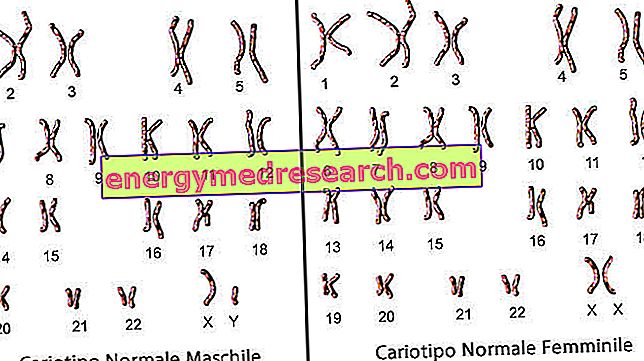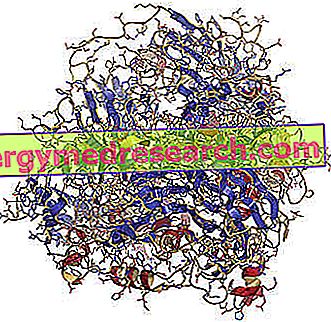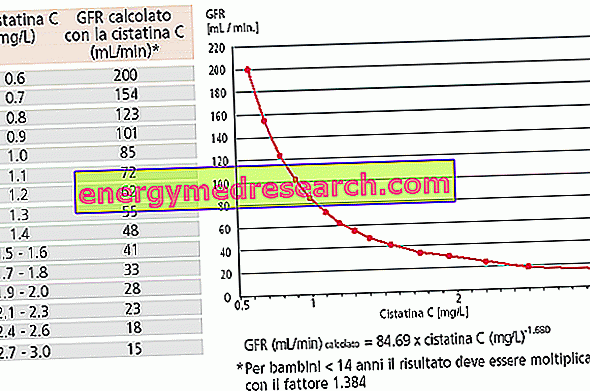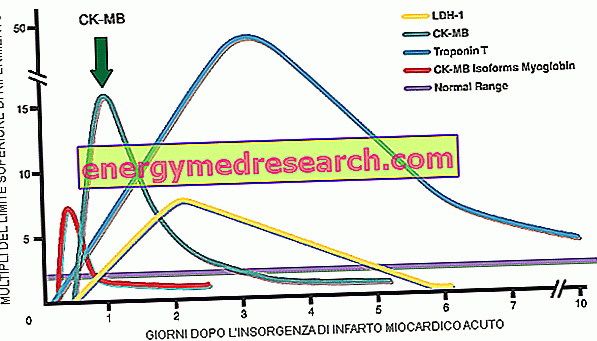Related articles: Hyperuricemia Definition Hyperuricemia is a high serum concentration of uric acid (> 7.0 mg / dl). This condition can be caused by an increased production of uric acid and / or insufficient renal elimination. Uric acid is the end product of purine metabolism; it is formed in the human organism starting from endogenous purines (de novo synthesis) or exogenous (deriving from the diet)
Category blood analysis
Generality The Carbohydrate Antigen 19-9 ( CA 19-9 ) is a protein that is produced in excess by the cells of many forms of gastrointestinal tumors . Consequently, the dosage of this marker is used for the initial typing of the neoplasm, to monitor the course of the disease and to evaluate the therapeutic response
Generality Calciuria is a laboratory index that measures the amount of calcium filtered by the kidneys and excreted in the urine . This exam allows the screening, diagnosis and monitoring of various conditions associated with alterations in calcium metabolism (including malnutrition, thyroid and bowel diseases, some cancers and nephropathies)
Generality The term calcemia indicates the concentration of calcium in the blood , where this mineral is found partly in free form and partly linked to plasma proteins, such as albumin (80%) and globulins (20%). Generally, the overall concentration of both forms is evaluated, the so-called total calcemia , to which the two fractions contribute in roughly equal parts
See also: cholesterol conversion - triglycerides mg / dL mmol / L Some laboratories limit themselves to detecting the plasma concentration of total cholesterol, LDL cholesterol and triglycerides, then calculating HDL cholesterol through the simple Friedwald formula : HDL cholesterol = total cholesterol - (LDL + cholesterol (triglyceridemia / 5)) If your laboratory has not provided you with the exact HDL cholesterol value, you can get to know it in a few moments using our calculation form
Some laboratories are limited to detecting the plasma concentration of total cholesterol, HDL cholesterol and triglycerides, then calculating cholesterolLDL through the simple Friedwald formula: LDL cholesterol = total cholesterol - (HDL + cholesterol (triglyceridemia / 5)) If your laboratory has not given you the exact value of LDL cholesterol, you can get to know it in a few moments using our calculation form
Generality The karyotype is an exam that allows to study the number and / or structure of an individual's chromosomes. The purpose of this analysis is to identify any anomalies responsible for various hereditary and non-hereditary diseases. The examination of the karyotype is performed on a sample of venous blood taken from the arm or on the cells collected by a needle aspiration of the haematopoietic cord
Generality Ceruloplasmin is the main copper transport protein in the blood. Consequently, anything that interferes with the supply of this mineral, or with the body's ability to metabolize it, can affect the blood concentrations of ceruloplasmin and copper itself. The plasma dosage of ceruloplasmin supports the diagnosis of Wilson's disease, in which it is completely absent or significantly reduced
Generality Cystatin C is a measurable blood protein that provides information on the state of renal function . The measurement of the concentration of cystatin C in the blood allows therefore to diagnose and monitor any pathologies affecting the kidneys. What's this Cystatin C is constantly produced from all types of nucleated cells in the body
Generality " Cytomegalovirus positive IgG " is the terminology used by doctors to indicate that IgG immunoglobulins against cytomegalovirus are present in an individual's blood; this serological finding indicates that the patient has contracted cytomegalovirus infection in the past, so much so as to have developed a reassuring immune memory on the occasion of any second exposures
Generality Serum creatine kinase-MB , more simply CK-MB , is an isoenzyme of creatine kinase, concentrated mainly in the heart muscle . As a result, CK-MB values in the blood can be measured to monitor the health of the heart. Creatine kinase is the enzyme that catalyzes both the formation of ATP starting from creatine phosphate and ADP, and the reverse process. It



